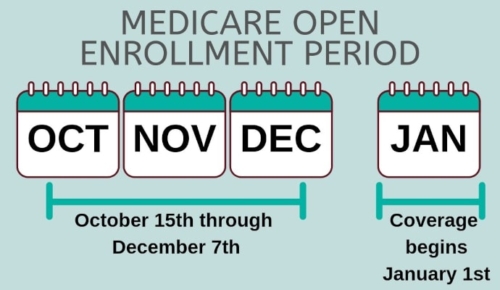Understanding Medicare’s Annual Enrollment Period (AEP)

What You Need to Know This Year
As the Medicare Annual Enrollment Period (AEP) approaches, it’s essential for beneficiaries to understand their options and make informed decisions about their healthcare coverage. Running from October 15th to December 7th each year, AEP is the time when you can review and change your Medicare plans to better suit your needs for the upcoming year. Here’s what you need to know this year to ensure you’re making the best choices for your health and budget.
1. Review Your Current Coverage
Before making any changes, take a close look at your current Medicare coverage, including any Medicare Advantage (Part C) or Prescription Drug (Part D) plans. Assess how well your plan has met your healthcare needs over the past year. Consider factors such as out-of-pocket costs, coverage for your preferred doctors and hospitals, and any changes in your health or prescription drug needs.
2. Understand Plan Changes
Medicare plans can change each year, including premiums, co-pays, coverage networks, and the drugs they cover. It’s important to review the Annual Notice of Change (ANOC) sent by your plan provider, which outlines any modifications to your plan for the upcoming year. Even if you’re satisfied with your current plan, these changes could impact your costs or access to care.
3. Compare New Plan Options
During AEP, you have the opportunity to switch from Original Medicare to a Medicare Advantage plan, change from one Medicare Advantage plan to another, switch Part D plans, or drop your Part D coverage altogether. Use the Medicare Plan Finder tool on the official Medicare website to compare plans in your area. Pay close attention to the costs, coverage details, and star ratings of each plan.
4. Consider Your Health Needs
As your health needs change, so might your Medicare coverage requirements. If you’ve been diagnosed with a new condition, started taking new medications, or need more specialized care, it might be time to switch to a plan that better accommodates your current situation. Additionally, if your current plan has high out-of-pocket costs, it may be worth exploring other options that could provide more financial relief.
5. Watch Out for Enrollment Deadlines
Missing the December 7th deadline could mean you’re locked into your current plan for another year unless you qualify for a Special Enrollment Period. Make sure to submit any plan changes or new enrollments well before the deadline to avoid any last-minute issues.
6. Get Help If You Need It
Medicare can be complex, and making the wrong choice can have significant implications for your healthcare and finances. If you’re unsure about your options, consider seeking help from a licensed insurance agent, a Medicare counselor, or using free resources like the State Health Insurance Assistance Program (SHIP).
7. Be Aware of Potential Scams
Unfortunately, the Medicare Annual Enrollment Period can also be a time when scammers try to take advantage of seniors. Be cautious of unsolicited calls, emails, or visits from people claiming to represent Medicare. Remember, Medicare will never call you to sell you a plan or ask for personal information.
Conclusion
The Medicare Annual Enrollment Period is a critical time for beneficiaries to reassess their healthcare needs and make necessary changes to their coverage. By staying informed about your options, understanding the implications of plan changes, and seeking help when needed, you can ensure that your Medicare coverage continues to meet your needs in the year ahead. Don’t wait until the last minute—start reviewing your options now to make the most of this important opportunity.
If you’re looking for extra support this AEP, contact Exude’s Licensed Medicare Agent, Ashley Wall, who can help educate, enroll, and guide you through the entire process.

